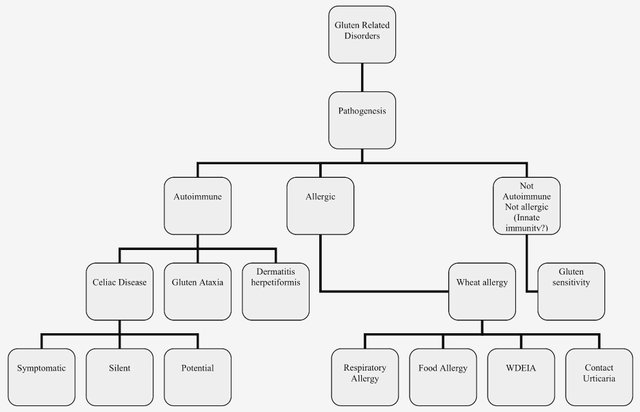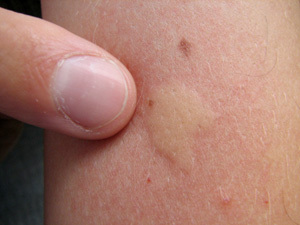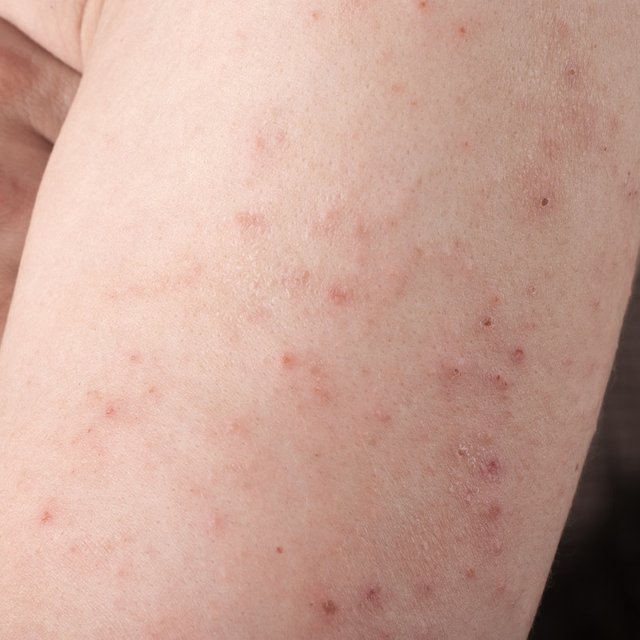Introduction
Gluten and humankind is having a controversial relationship. More recently the trend for a large percentage of the population has been to shy away from Gluten. It is not a fashion trend. People are genuinely concerned. NPD group, a global information company, reported some bewildering numbers in 2013. One in three Americans are cutting down or avoiding Gluten. This has led to a new facet in economic trends for restaurants and the food industry in general. Is Gluten dangerous? Should all of us avoid Gluten? The boundaries between myth and science have become blurred. This post looks at the scientific evidence to help clear the murky waters a bit.
What is Gluten?
The term Gluten refers to a family of structural proteins found in many grains such as wheat, barley, rye and spelt. Thus it is present in common foods such bread ,pasta, graham flour, couscous and more. The list is long. Here is a fantastic list of various food and non food sources that expose humans to Gluten. Did you know that putting on some lipsticks or licking an envelope may expose you to gluten?
Amongst the structural proteins of Gluten, 2 fractions are well known to be toxic to some humans. These are Gliadins and Glutenens. Mass human exposure is felt to have started with developments in agriculture and dates back about 10,000 years.

source
Scientific Nomenclature and Consensus classification of Gluten related disorders.
Experts convened in 2011 and the meeting resulted in this proposed algorithm.
 source, modified from.
source, modified from.The spectrum of Gluten induced diseases.
Most of us have heard of Celiac disease. Other Gluten related diseases are not well known. Essentially these disorders can classified based on above nomenclature as Allergic, autoimmune and non allergic non autoimmune disorders. We will discuss them in these categories.
Allergic disorders.
These are immediate to near immediate reactions. Duration between exposure and symptom development is short.
Sharing the mechanisms with many classical allergic disorders, the reaction is mediated by immunoglobulin E ( IGE). Note that 60% of all Asthma is allergic asthma and is also mediated by IGE. A bee sting allergic reaction is similar. The proteins in the Gluten react with body’s own IGE and a cascade of reactions happens resulting in the clinical manifestation of allergy. Those sensitive to Gluten react particular to the contact route. If ingested, it can cause gastrointestinal,skin and respiratory reactions. Bakers can develop bakers asthma by inhaling it. Also allergic runny nose can occur (rhinitis). There is a particular reaction called Wheat dependant exercise induced anaphylaxis (WDEIA). In susceptible individuals, exposure prior to excercise such as eating Gluten containing food can cause an anaphylactic reaction with exercise. Urticaria is a visible skin reaction that can occur after contact with Gluten.

source
Autoimmune disorders include Celiac disease, Gluten ataxia and dermatitis herpetiformis.
These happen weeks to years after exposure.
Celiac disease can be very serious. It results from Gluten damage to the intestines. It clinically can be silent. Usually chronic diarrhea is present. It can affect the nervous system. It can cause osteoporosis, anemia and weight loss etc. Thus the recognition of the disease can be delayed.
Dermatitis herpetiformis causes blisters and a rash.

source
Gluten ataxia damages the cerebellum in the brain. Cerebellum is in part responsible for balance. Thus instability and abnormal gait while walking develops.
Non allergic non autoimmune Gluten disorders. Also called Gluten sensitivity.
These are disorders that do not have blood markers for Gluten induced disease. Celiac disease and wheat allergy must be ruled out. Surprisingly these disorders improve when Gluten is removed from diet. The symptoms can vary tremendously.
Some reported symptoms are irritable bowel like disease, bloating, acid reflux, mouth ulcers, fibromyalgia like pain, fogginess of the brain, depression, anxiety and symptoms of deficiencies from nutrients etc. The list is long. You may find good information on the subject here.
Testing for Gluten induced diseases.
Sometimes a diagnosis is easy but most times it is complex. First you need to find a physician who is well versed in Gluten induced diseases and carries a high index of suspicion. You will nearly always need blood tests and an endoscopy. Allergy tests may be needed through an allergist. Then again Gluten sensitivity does not have any blood or pathological markers. It can only be diagnosed after confirming improvements in clinical situation once Gkuten has been avoided. A good clinician is needed to recognize the possibility of Gluten sensitivity.
How to avoid Gluten.
You will need to work with your doctor and a nutritionist. There are dangers in self administration of a diet without guidance. You may allow nutritional deficiencies and thus serious consequences if you approach this without proper knowledge. Thus this post is not about tips and tricks of gluten avoidance. An excellent Mayo Clinic resource can be found here.
Author’s commentary.
Once it was felt that people with established Celiac disease should be the ones avoiding Gluten. The rest of us don’t have to worry. Gluten sensitivity has been a hot topic of debate in the science community. A 2015 paper that gives a somewhat skeptical viewpoint can be seen here. Another excellent paper that reviews the current literature was published in 2014. It can be found here.
The fact that people feel better or have resolution of symptoms while avoiding one specific ingredient in their meals speaks volumes. It is imperative that more research be done to biochemically or genetically recognize individuals that may be at risk. The great movement of Gluten avoidance may not be without merit.
References:
- Some are embedded in the post. Other sources are listed below.
- https://www.ncbi.nlm.nih.gov/pmc/articles/PMC3292448/pdf/1741-7015-10-13.pdf
Questions and comments are welcome.
N. Inayet MD, FCCP.
This is a test comment, notify @kryzsec on discord if there are any errors please.
Being A SteemStem Member
Downvoting a post can decrease pending rewards and make it less visible. Common reasons:
Submit
I read your article well knowing in advance what the study did find, and I read it with pleasure. There are still misconceptions about Gluten, and I find it funny, like you said, that people feel completely changed after eating gluten free products :D
Also you made a typo - "Gkuten" in the last sentence. Cheers!
Downvoting a post can decrease pending rewards and make it less visible. Common reasons:
Submit
So kind of you to let me know about the typo. I fixed it. Thanks.
Downvoting a post can decrease pending rewards and make it less visible. Common reasons:
Submit
And even if there's such a thing as gluten sensitivity (which it appears there is), we don't know if with proper treatment of the flour it won't go away. For instance soaking it with whey, or not refining it, might eradicate the symptoms. It's like people who are sensitive to milk, but who report their symptoms going away when they drink unpasteurized milk, that contains the lactase to digest the lactose.
Our ancestors might've known a thing or two about how to prepare these products for human consumption. Cos back then at least half of the world's population (i.e. women) did nothing but cook and discuss cooking among themselves and observe the results of their cooking on their growing children. Half the world were expert nutritionists!
Downvoting a post can decrease pending rewards and make it less visible. Common reasons:
Submit
I am looking for one of those women.
Kidding aside god knows what has gone bad with gluten. Genetically the wrong kinds or modifications. Improper cooking? All research is likely to be crushed because of money issues. Thanks kindly for your upvote.
Downvoting a post can decrease pending rewards and make it less visible. Common reasons:
Submit
V good 😍😍
Downvoting a post can decrease pending rewards and make it less visible. Common reasons:
Submit
You got a 15.59% upvote from @postpromoter courtesy of @nedspeaks!
Want to promote your posts too? Check out the Steem Bot Tracker website for more info. If you would like to support the development of @postpromoter and the bot tracker please vote for @yabapmatt for witness!
Downvoting a post can decrease pending rewards and make it less visible. Common reasons:
Submit
Thank you very much for nice and comprehensively written text. The theme selection is wonderful and can help all people (who has gluten problem and those who don't have it). I agree that all of us don't have to worry about gluten and avoid it, which seems to me has become a global trend in my country.
Downvoting a post can decrease pending rewards and make it less visible. Common reasons:
Submit
I think we will find out that gluten negatively affects people beyond celiac disease. Primarily considered a European problem, so you must be in Europe somewhere. Thankyou for reading my post.
Downvoting a post can decrease pending rewards and make it less visible. Common reasons:
Submit
Yes, I’m from Serbia. It is country situated at the crossroads of Central and Southeast Europe in the southern Pannonian Plain and the central Balkans :).
Downvoting a post can decrease pending rewards and make it less visible. Common reasons:
Submit
Nice post @nedspeaks. I'd say the best thing about the gluten craze is that people with celiacs disease have a good variety of gluten-free foods to choose from!
Downvoting a post can decrease pending rewards and make it less visible. Common reasons:
Submit
Thanks @altherion. After reading my own post, I wanna try to be gluten free.
Downvoting a post can decrease pending rewards and make it less visible. Common reasons:
Submit